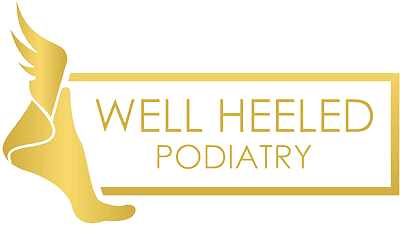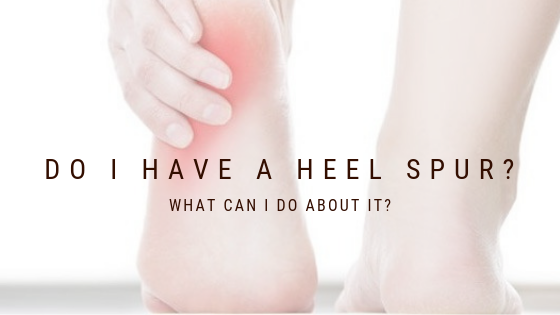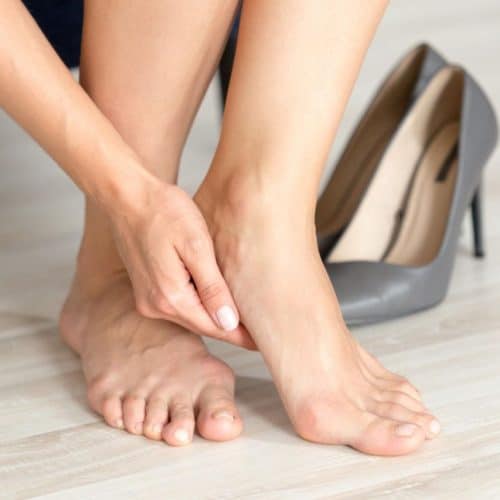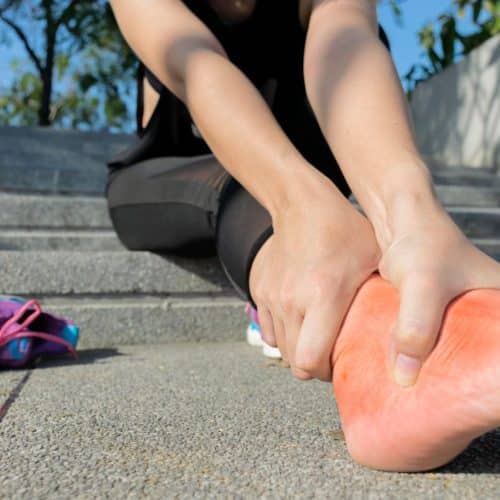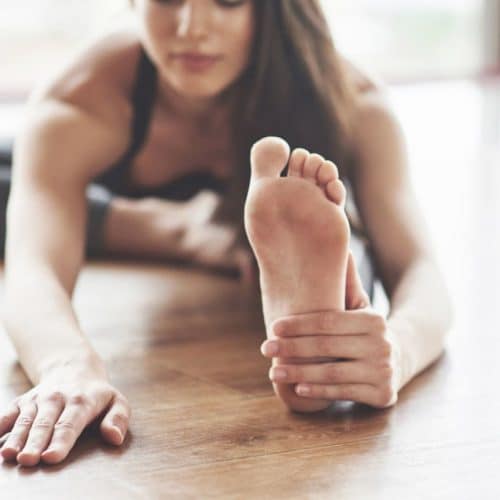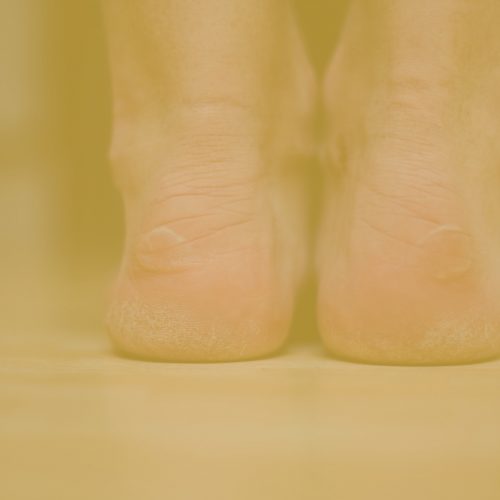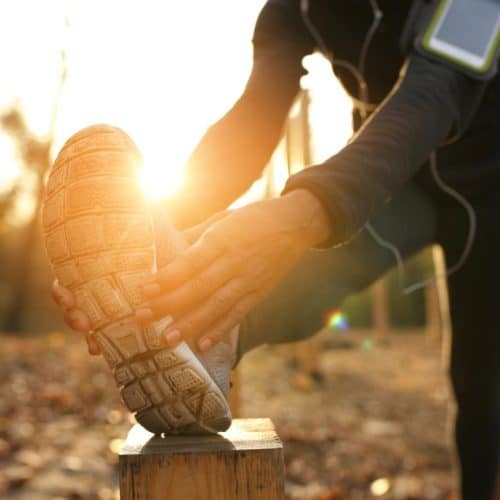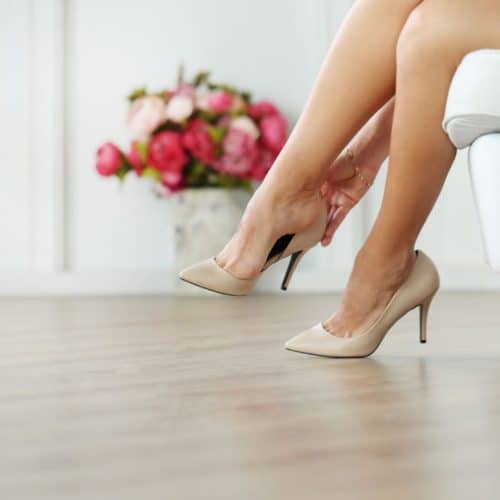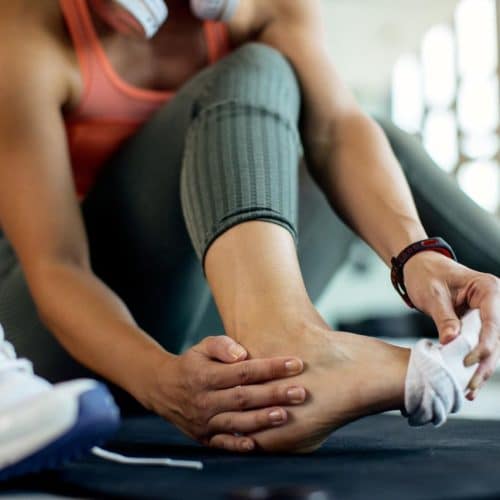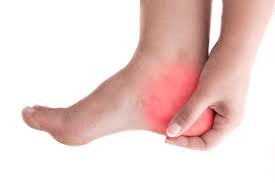
Pain can be experience in the heel or arch of your foot and become worse after sitting down for a long period of time.
The good news is- we can help you!
What is plantar fasciitis/ heel spur?
- Plantar fasciitis is caused by an inflammation of the plantar fascia (the main tendon along the bottom of your foot that connects your heel bone to your toes).
- It normally caused a sharp or stabbing pain that is usually worse in the morning when getting out of bed.
- Usually once the foot has “warmed up” and “stretched out again” the pain will generally decrease, but it often returns after sitting for a prolonged period of time.
I have heel spur pain, what has caused my pain?
- Overuse and increased physical activity.
- Inappropriate shoes.
- Tight calf muscles and plantar fascia.
- Long hours on your feet.
- Flatfeet or high arched feet, abnormal walking patters and instability in the feet can affect the heels.
At Well Heeled Podiatry in Hampton, our podiatrists have extensive experience in assessment and treatment for heel pain. Our treatments are specifically tailored to each individual, using the most up to date treatment options.
I’ve tried everything, how can a podiatrist help with my heel spur pain?
Your podiatrist will:
- Look at how your feet are moving and functioning when you are walking, identifying any abnormal walking patterns or signs of instability.
- Assess your current footwear.
- A series of foot specific examinations including; muscle testing and range of motion testing.
- Find the cause of your problem and formulate a treatment plan to help manage symptoms and cure the cause.
What treatments can be offered?
- Footwear advice.
- Taping of the feet (applied by podiatrist and self application).
- Specific stretching and strengthening exercises, prescribed by podiatrist.
- Correcting the way you stand and walk with orthotic therapy
- Shock Wave Therapy, clinically shown to resolve 70-80% of chronic heel pain cases.
- Dry needling and foot mobilisation.
- Deep tissue massage.
- Prolotherapy Injections.
- Exercise prescription and return to running programs.

